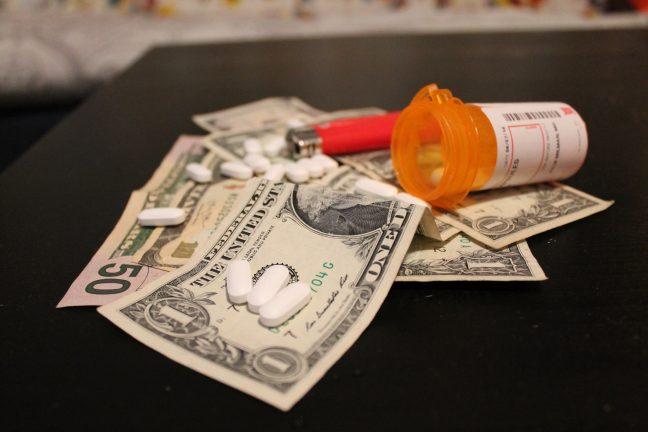An old television set may not appear to be valuable to most people, but for some substance abusers, it may be the key to financing their addictions.
As a growing number of low retail, petty crimes have been documented in the city, Madison Police Department suspects the increases are symptoms of the growing opioid epidemic in the area. MPD Chief Mike Koval said the items being taken are highly transferable and pawnable, rather than high in value, meaning they could be be stolen to pay for heroin and opioids.
“These robberies are inextricably tied to the addiction this community has,” Koval said. “[Abusers] are thieving their way to fuel their addictions day in and day out.”
Rallying for recovery: Naloxone offers opportunity to fight Wisconsin’s opioid epidemic
According to the Centers for Disease Control and Prevention, in 2014 alone, there were 853 opioid overdoses in the state of Wisconsin.
While MPD cannot offer an exact number of how many of these robberies are connected to those trying to fuel their addiction, MPD spokesperson Joel DeSpain said anecdotally speaking, there has been a rise in addiction-motivated crimes in the last six months.
Most recently, DeSpain said MPD believed a woman who perpetuated a string of robberies was trying to finance her addiction.
Along with robberies, Lt. Corey Nelson said he has also noticed there has been a lot of low retail crimes and prostitution cases related to substance abuse.
Community leaders and city officials believe this is no longer an issue they can simply arrest their way out of.
To combat the rising opioid epidemic, MPD partnered up with various organizations throughout the City of Madison and Dane County last month to offer non-violent offenders the opportunity to get treatment.
The three-year pilot program, Madison Addiction Recovery Initiative, is funded through a $700,000 Smart Policing grant from the U.S. Department of Justice. MARI, which is set to debut January 2017, will allow substance abusers the chance to get treatment rather than enter the criminal justice system when facing a potential arrest.
The grant money will fund the positions for a program coordinator, counselors and peer mentor coaches, said Aleksandra Zgierska, University of Wisconsin School of Medicine assistant professor.
The counselors, who are trained professionals, will evaluate and recommend the appropriate level of care for an individual.
Peer recovery coaches, who have had similar experiences with substance abuse disorders and are themselves in long-term recovery, will also help substance abusers in the program.
“These are people who have walked in the shoes of those currently dealing with their addiction,” Zgierska said.
Use of heroin anti-overdose medication increased 300 percent in last year
To qualify for the program, one must be a non-violent offender whose committed crimes are directly related to fueling their addiction. Violent offenders will not be offered the chance to participate in the program.
In addition to offering the treatment, Nelson said MPD will hold their charges for up to one year to ensure the successful completion of the program. Should an abuser commit another crime, however, they will be kicked out of the program.
The leaders in this initiative recognize addiction is a disease, which means abusers can relapse — but that doesn’t mean they should be kicked out of the program because of it.
If the patient makes an honest effort toward recovery, Nelson said they will most likely not be kicked out. He said jail is not the place for addicts to receive treatment.
“Jails are not offering these coordinators, counselors or support coaches,” Nelson said.












